THE VOICE OF REAL ESTATE IN NORTH CAROLINA VOL 95 NO 4 | NOVEMBER 2016 + NCREALTORS.ORG Conference Recap Haunted Real Estate 7 Ways to Save Energy Costs This Winter TINY HOMES: MOVEMENT OR HYPE? DRONES: THE NEXT FRONTIER IN REAL ESTATE • Candidate Breakdown • Congressional Actions • REALTOR® Priorities • Resources ELECTION GUIDE & More

10 2016 Review/Looking Ahead 2017
A look at NC REALTORS®' accomplishments over the past year, and how we will continue that success in 2017.
14 Trick or Treat?
Does haunted real estate spook REALTORS® and buyers?
16 Your Voice, Your Vote
COVER: The potential impact of the elections on the nation’s housing market and how REALTORS® can affect change.
18 Drones: The Next Frontier in Real Estate REALTORS® can utilize drone technology in their business without breaking the bank.

22 Movement or Hype?
Tiny houses are trending online, not in real life.

26 7 Ways to Save on Energy Costs During Winter
What homeowners can do to reduce energy expenses.
29 True or False?
FORMS GUY: Take the latest quiz based on recent legal Q&As.
Have something to talk about? Sure you do — and we want to hear it! Send us your comments, ideas or success stories to mallen@ncrealtors.org and you could be featured in the next Insight.

ncrealtors.org • INSIGHT 3
[ CONTENTS ]
November 2016
TALK TO US
5 HISTORY IN THE MAKING 2016 Conference Recap 7 GLOBAL NETWORK TASK FORCE Think Global, Act Local 8 STAFF DEVELOPMENTS & RISING STARS 9 REALTOR® PARTNER PROGRAM 10 22 18
features
President's MESSAGE
NC REALTORS® are at full throttle, charging into 2017 with 37,600 members in the driver’s seat. Pending home sales may be tapering off nationally for the third time in four months to the lowest levels since January, according to NAR’s Pending Home Sales Index, but not NC REALTORS®. We have proven to be fearless leaders in our own right this year, tackling tough obstacles, banks and turns, and together, we’ve embraced and enabled positive change in our association. Inside this issue of Insight, one feature article looks at the collective accomplishments across all facets of NC REALTORS® during 2016, while previewing the coming year and Treasure’s vision. We all have a lot to be proud of, and even more exciting times are to come.
REFLECTING ON THE JOURNEY
As I near the end of my journey as president of NC REALTORS® — a role I embraced with intense passion for our industry, members, profession and staff — I have no regrets. From the acquisition of the Heck-Andrews House to passing the REALTOR® of the Future PAG to the creation of the Economic Development Committee and beyond, we’ve made a positive impact on our members and communities. This collaborative legacy will be one that influences and shapes NC REALTORS® for many years. Turn the pages to reflect on highlights of our achievements for 2016.
IN THIS ISSUE | CONTENT YOU CAN USE
Consumer-oriented content now fills the pages of Insight magazine starting with this issue. Articles covering the national election, drones, tiny houses, strategies for winterizing homes and even haunted real estate will delight and inform your clients. This fresh content (and magazine as a whole) can be shared directly with your clients — digitally, socially or in print. This is just one of many exciting changes you can look forward to in the coming months, as we strive to maximize your member benefits to grow your business and educate consumers about the value of NC REALTORS®.
ANTICIPATING GREAT MOVES
We are closing in on 2017, and your new leadership will soon be in the driver’s seat with Treasure behind the wheel. I am confident we’ve collectively established a solid foundation for the new team to build on, and as you will learn within, Treasure is committed to building on the great foundations I — and the leaders before me — built for the association.
We all have a lot to be proud of, and I am now more than ever, proud to be an NC REALTOR®. It has been my honor.
Insight, Volume 95, Issue 4
President
Kim Dawson, ABR, CRS, GRI, SRES
President-Elect
Treasure Faircloth, REALTOR®, GRI, CRS
Treasurer
Kelly Marks, ABR, CRS, GRI
Immediate Past President
Tony Smith, ABR, ABRM, CRS, GRI
REGIONAL VICE PRESIDENTS
Region 1: Kathy Perry, Emerald Isle; Region 2: Deb Hays, Wilmington; Region 3: Bruce Gates, Goldsboro; Region 4: Brett Bushnell, Chapel Hill; Region 5: Lolita Malave, Greensboro; Region 6: Phil Rector, Pfafftown; Region 7: David Pierceall, Gastonia; Region 8: David DeSilva, Leslie Fisher, Charlotte; Region 9: David Wall, Asheville; Region 10: Linda Trevor, Asa Fleming, Raleigh; At-Large: Sandra O’Connor, Greensboro.
Chief Executive Officer
Andrea Bushnell, Esq., CIPS, RCE
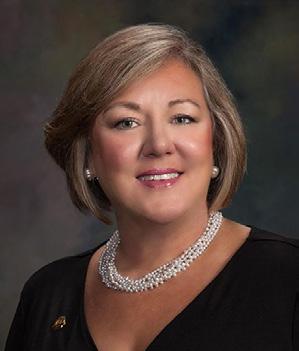
Director of Communications & Marketing





Tracey Gould, M.S. IMC, CPSM
Editor Mckenzie Allen
Contributors
Will Martin Seth Palmer Kirk Stanford Isabel Villa-Garcia
For advertising information, contact Mike Buescher at 336-808-4229 or mbuescher@ncrealtors.org.
INSIGHT (ISSN 24714127) (USPS 17170) is published four times a year in February, May, August and November by NC REALTORS®, 4511 Weybridge Lane, Greensboro, NC 27407. Periodicals Postage Prices paid at Greensboro, N.C. and additional mailing offices.
POSTMASTER: Send address changes to INSIGHT, 4511 Weybridge Lane, Greensboro, NC 27407-7877.

This publication is designed to provide accurate and authoritative information regarding the subject matter covered. Articles which appear in Insight are an informational service to members and consumers. Their contents are the opinions of the authors alone and do not necessarily represent those of NC REALTORS®.
Advertising of a product or service does not imply endorsement, unless specifically stated.
To opt-out of paper copy mailings, email hello@ncrealtors.org with a subject line of “Insight opt-out.”
Kim Dawson 2016 President

4511 Weybridge Lane, Greensboro, NC 27407 Phone: (336) 294-1415, Toll Free: (800) 443-9956
ncrealtors.org
4 INSIGHT • November 2016
the scene CONFERENCE
HISTORY IN THE MAKING
NAR President Tom Salomone dropped by and praised NC REALTORS®' success this year.

In September, NC REALTORS® gathered at The Greenbrier in West Virginia for enlightening education, uplifting community engagement, historic board decisions and timeless memories.
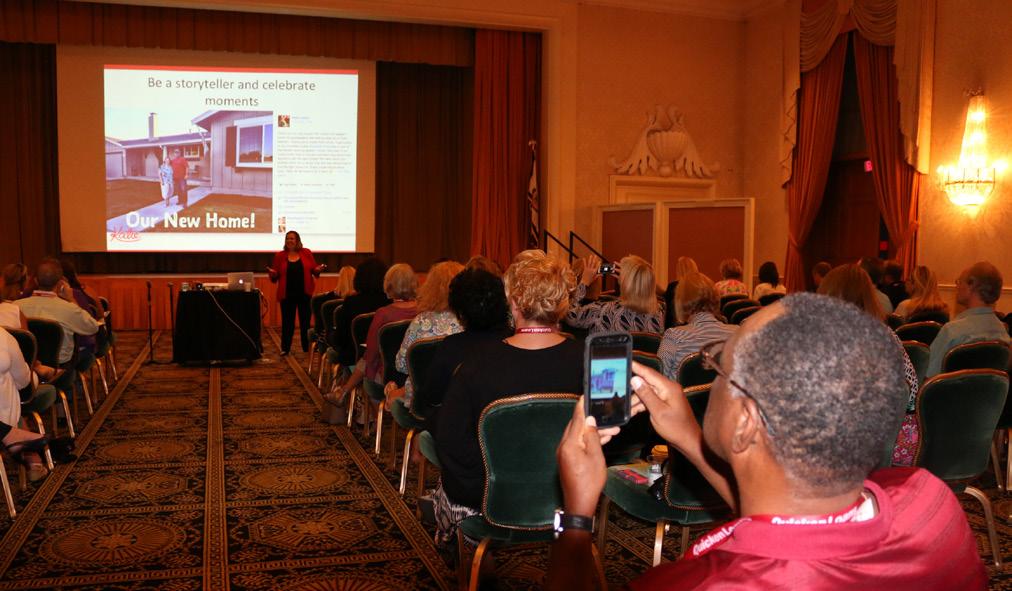
ELECTION RESULTS
President-Elect: Amy Hedgecock, High Point Regional
Regional Vice Presidents:
Region 2: Deb Hays, Wilmington Regional
Region 3: Lisa York, Fayetteville Regional
Region 4: Wade Corbett, Johnston County
Region 6: Stephen Long, Winston-Salem Regional
Region 8: David DeSilva, Charlotte Regional
(Elected for one year to complete an unexpired term of a previously elected candidate)
Steven Bryant, Charlotte Regional (two-year term)
Region 9: Randall Blankenship, Land of the Sky
Region 10: Harriette Doggett, Raleigh Regional
Finance & Budget:
Billie Green, Haywood County
Laurie Knudsen, Charlotte Regional
Bruce Williams, Brunswick County

Issues Mobilization:
Bob Bates, Greensboro Regional (two-year term)
Patrice Willetts, Wilmington Regional (two-year term)
NC REALTORS® WILLIAM C. BASS
LEADERSHIP ACADEMY
CLASS OF 2016
Ray Alexander, Greensboro Regional
Bob Bates, Greensboro Regional
Rosie Buerger, Fayetteville Regional
Clif Cheek, Brunswick County
Alton Cooper, Winston-Salem Regional
Crystal Copas, Sanford Area
Randy Dockery, Mountain Lakes
Anita Emery, Mid Carolina
Rich Ponzio, Raleigh Regional
Renee Smith, Raleigh Regional
Johnny Wehmann, Orange Chatham
Michael White, Durham Regional
ANNUAL AWARDS
REALTOR® of the Year
Stephanie Walker, Outer Banks
NC REALTORS® Hall of Fame
Cindy Chandler, Charlotte Region Commercial
Ben Ball Community Service Award
Linda Trevor, Raleigh Regional
Regional Service Awards
Greg Payne, Durham Regional (Region 4),
Stephen Long, Winston-Salem Regional (Region 6)
Harriette Doggett, Raleigh Regional (Region 10)
Attendees enjoyed a fun trivia competition and had the chance to bid on numerous live and silent auction items to raise over $56,000 for NC RPAC.
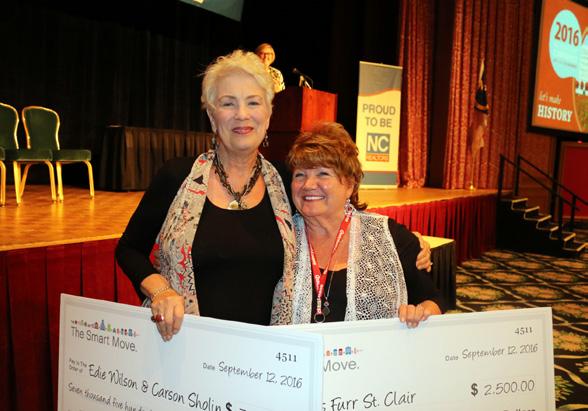
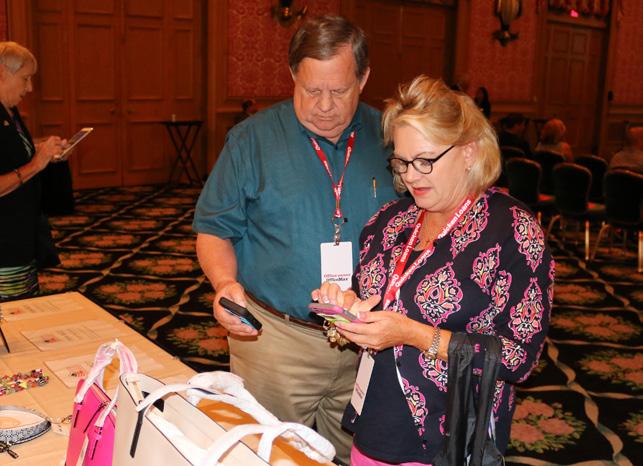
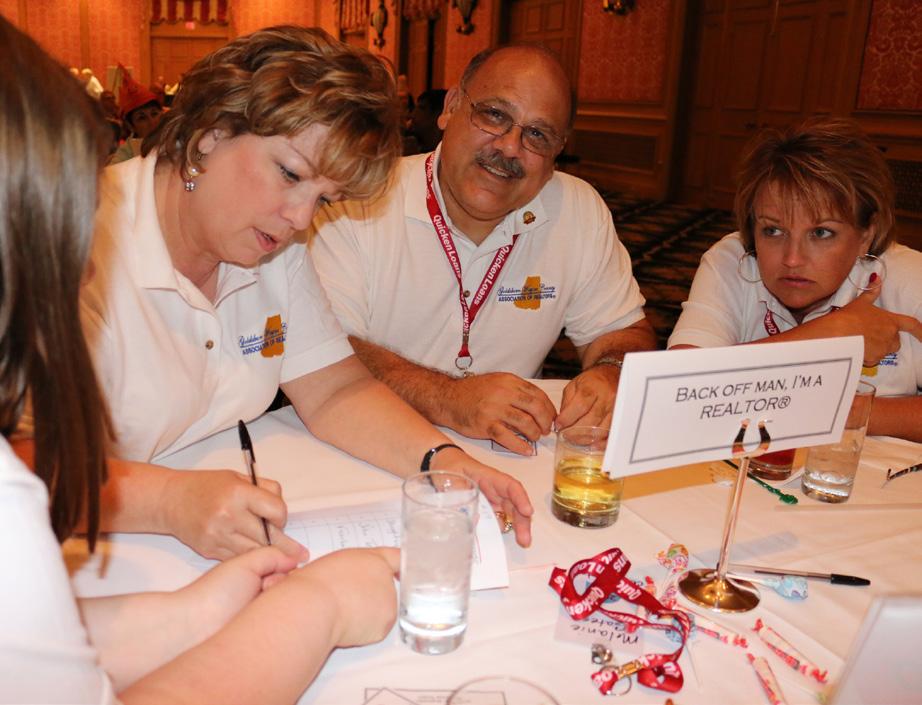

Amy Hedgecock of High Point Regional was elected as 2017 President-elect.

The REALTOR® Innovation & Entrepreneurial Excellence Award
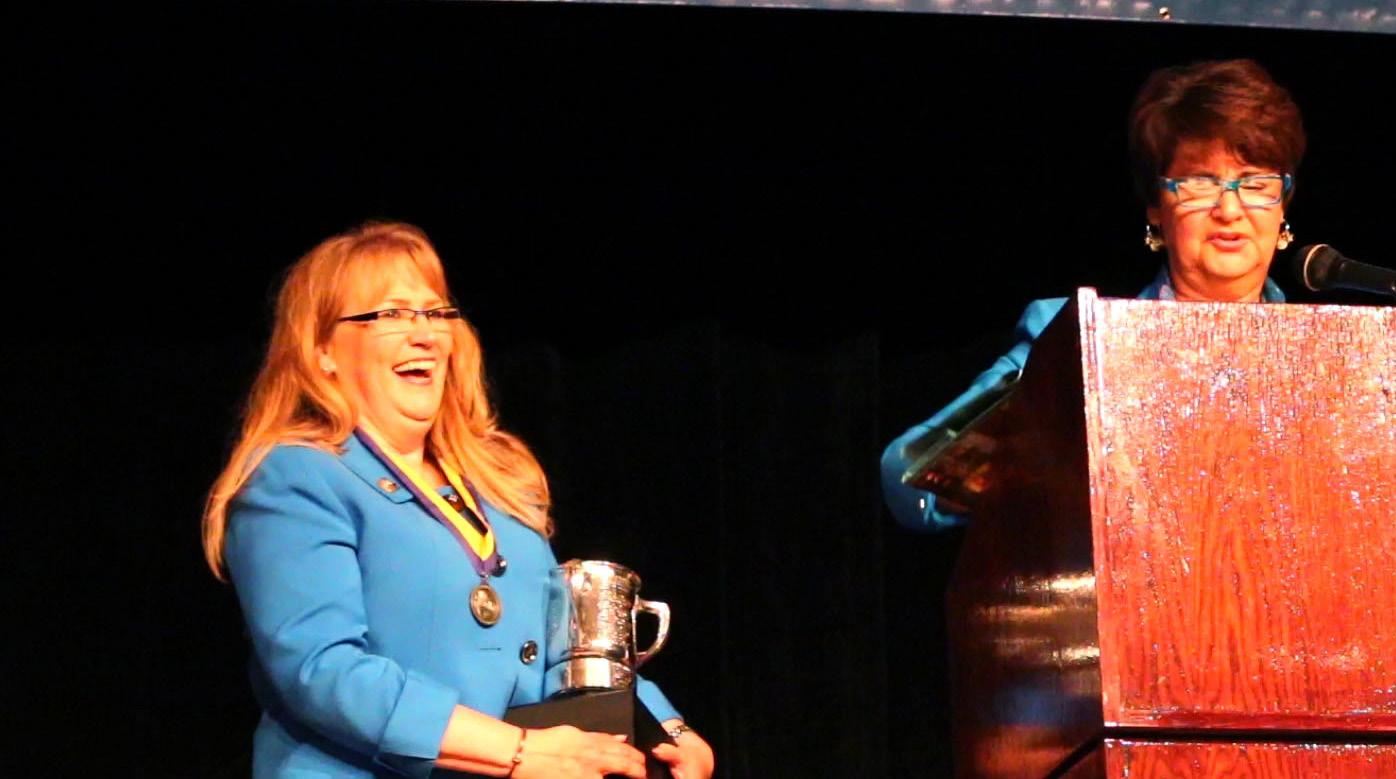
Mark Saunders, Winston-Salem Regional
NC REALTORS® Committee Member of the Year
Tom Barton, Neuse River Region
ncrealtors.org • INSIGHT 5
Industry experts offered new and exciting tips for the modern real estate business.
NC REALTORS® learned the latest in products and technologies in the Expo.
Stephanie Walker was honored as the 2016 REALTOR® of the Year.
The Smart Move™ contest winners Edie Wilson and NC REALTOR® Phyllis Furr St. Clair. NC REALTORS® pulled together to help with West Virginia flood relief.
November 8
Election Day
Make your REALTOR® voice heard and VOTE!
November 9
Webinar Wednesday: Taxbot

Learn why tax planning is so important and what deductions you can apply to keep more of what you earn. Register at ncrealtors.org
December 14
Webinar Wednesday: Password Protection for REALTORS®
Discover how to protect you and your clients' information in the cloud.
Register at ncrealtors.org


January 24-27
Inaugural Meetings & Vision Quest
Twint City Quarter, Winston-Salem
We'll kick things off with Spokesperson Training and Vision Quest on January 24-25, then we'll celebrate with incoming President Treasure Faircloth at the Gala on Thursday, January 26.
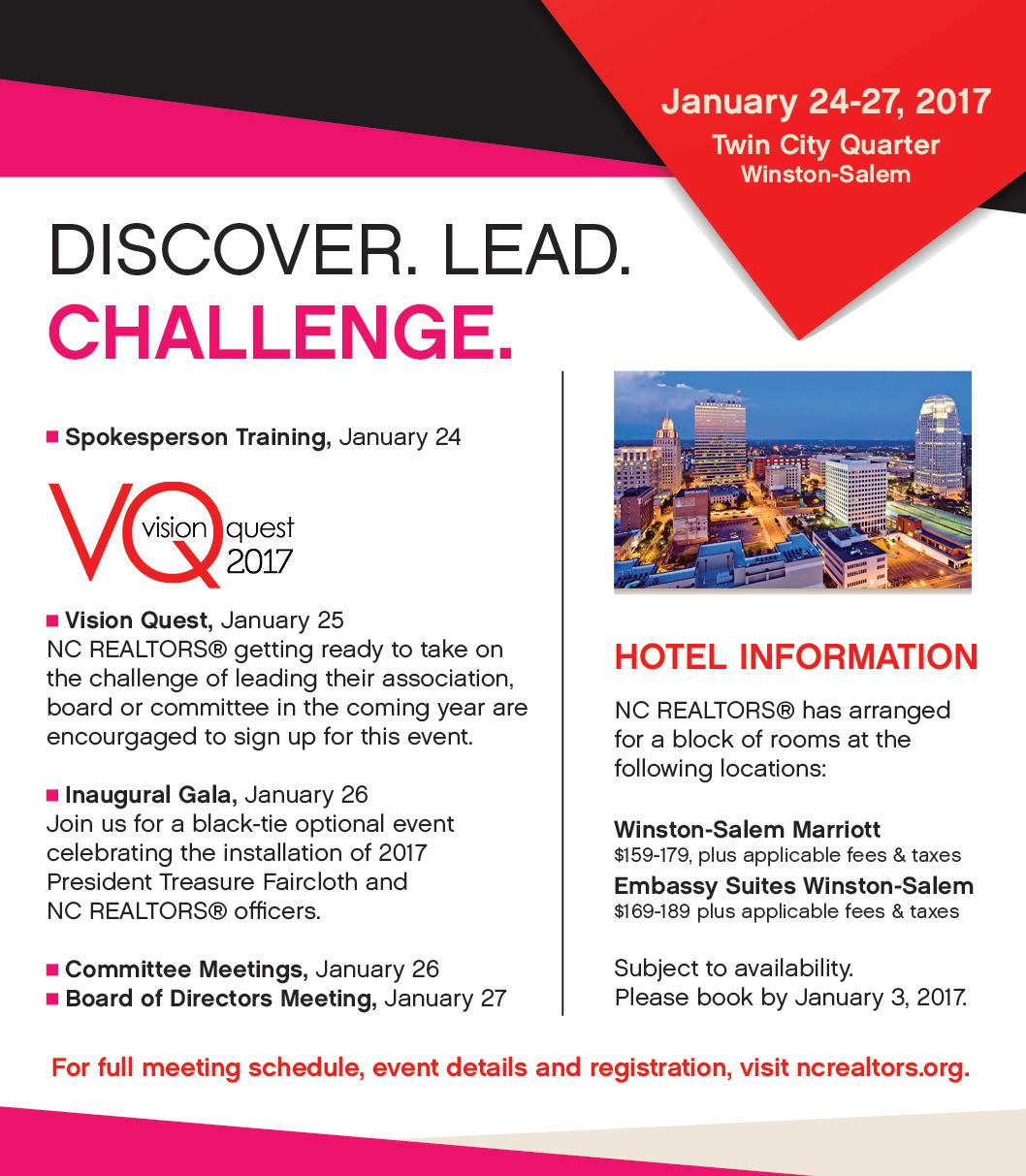
EDUCATION OPPORTUNITIES
November 9
GRI: Balancing
Business Risks & Ethics
Outer Banks
November 9
GRI: Technology
Tools & Resources
Catawba Valley
November 16
GRI: Business Planning
Charlotte Regional
November 17
GRI: Balancing
Business Risks & Ethics
High Point Regional
Happy Holidays
January 13
GRI: Balancing
Business Risks & Ethics
Winston-Salem Regional
January 19
GRI: ABC's of Financing
Greensboro Regional
January 24
GRI: Technology
Tools & Resources
McDowell County
February 16
GRI: Balancing
Business Risks & Ethics
McDowell County
[ SOMETHING TO TALK ABOUT ]
EVENTS
[
]
Check the ncrealtors.org calendar for all upcoming events. Honor your colleagues, friends and family by sending Homes4NC cards this holiday season. Place your order by visiting NCREALTORS.ORG
JOIN THE CONVERSATION
If you would like to get more involved with the Global Network Task Force, please contact Isabel Villa-Garcia: ivilla-garcia@ncrealtors.org.
 NETWORK TASK FORCE
NETWORK TASK FORCE
THINK GLOBAL, ACT LOCAL
BY: ISABEL VILLA-GARCIA | LEGISLATIVE SPECIALIST
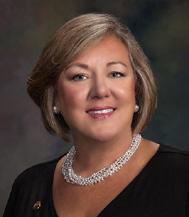
NC REALTORS® has been busy and full of changes in 2016. Right on task with the drive to make North Carolina and its economy better, President Kim Dawson created the Economic Development (ED) Committee. The committee, led by Chair Sheila Knight of Jacksonville and Vice-Chair Lou Baldwin of Winston-Salem, will serve as the liaison between REALTORS® and economic development activities across the state.
A major component to the committee is an increased focus on international transactions and the importance of North Carolina in the global economy. To this effect, the ED Committee commissioned a Global Network Task Force at their meeting during Legislative Days. Chaired by Tony Harrington of Wilmington, this task force is quickly getting organized to help local REALTORS® and associations think and react globally.
According to the National Association of REALTORS®, foreign buyers spent a total of $195 billion on U.S. properties in 2015 ($104 billion on residential and $91 billion on commercial). North Carolina is expected to release its own report in November, providing additional detailed information about the impact of the global economy on individual localities. These reports clearly show what we already know: foreign buyers and sellers are a large part of the real estate market and NC REALTORS® need to be prepared to be a part of these transactions.
Over the coming months, NC REALTORS® will launch the Global Network, which will include web and email content, as well as educational opportunities for members. Be on the lookout for more information!
"The power of 37,000 NC REALTORS® got stronger this year with the creation of the Economic Development Committee. Through a strategic alliance with the North Carolina Economic Development Partnership, our association strives to have a greater impact on the state's economy. It is the goal of the committee to engage in proactive work with the state and local partners to bring people and businesses to North Carolina, which will ultimately help members and their business down the road. Additionally, the committee has begun work on the NC REALTORS® Global Network, focused on engaging with our members and local communities already involved in international transactions, as well as fostering connections for future opportunities."
Kim Dawson, 2016 President
GLOBAL
ncrealtors.org • INSIGHT 7
STAFF DEVELOPMENTS
Meet the 2016 Rising Stars
In just a short time, this bright, energetic group is already taking the industry by storm.

New Addition to Government Affairs AWARD WINNERS





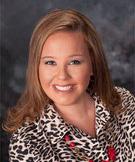




NICK SCARCI,


Shared GAD
Nick serves as shared goverment affairs director for the Greensboro Regional REALTORS® Association (GRRA) and the High Point Regional Association of REALTORS® (HPRAR), and is based in the NC REALTORS®’ headquarters office. A native of Boston, Nick went to the University of Pittsburgh where he studied foreign languages and earned a B.A. in political science. During his time there, he studied abroad in Amman, Jordan and had an internship with the U.S. State Department in Santiago, Chile. After graduation, he worked on several statewide campaigns in Pennsylvania, which led to his most recent position with a Pennsylvania State Representative. Visit ncrealtors.org for a full list of NC REALTORS® staff and contact information.
8 INSIGHT • November 2016
Kelinda Webster Carteret County
Donna Atherton Brunswick County
Shane J. Kirk Durham Regional
Scott Thompson Greensboro Regional
Jess Edwards Greenville-Pitt
Melissa Zimmerman Charlotte Regional
Eric Knight Wilmington Regional
Michelle Speagle Winston-Salem Regional
Lesley Bailey High Point Regional
Ward Ricke Raleigh Regional
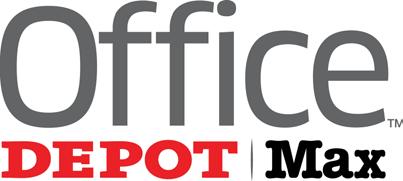
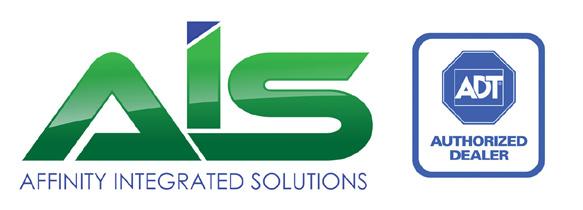

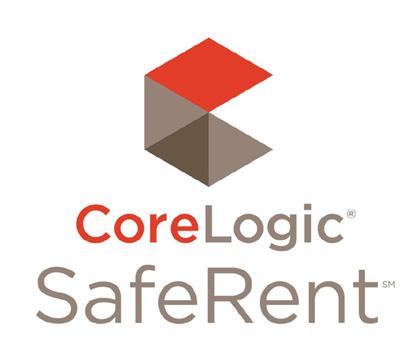
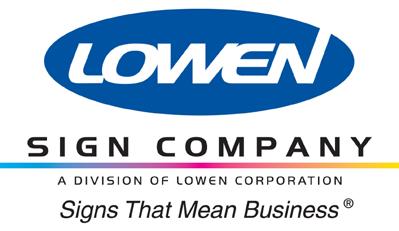





Special Discounts on the Products and Services You Use Most! Enjoy discounts on office supplies, furniture, technology products and copy and print services. Providing state-of-the-art home security and automation at discounted pricing. Save 20% on the best tenant screening tools available. Save up to 30% on overnight shipping, 16% on select ground shipping and up to 10% on business services. Turn expenses into deductions with this app and receive a 50% discount. Free access to zipForm®Plus including seamless integration solutions for e-signature and option to add to mobile devices. Receive 5% and 10% off franchise and independent catalog orders. ncrealtors.org/partners FORMS Brought to you by NC REALTORS® and NAR Savings on auto, pet and recreational vehicle insurance plans. INSURANCE SERVICES Access comprehensive real estate errors & omissions insurance. Protect what matters most – Your Income, with Discounts up to 30%. Receive 20% off complete inbound marketing solutions to generate and close more leads. A Division of a la mode Let them handle your property and casualty insurance needs so you can focus on your clients. Note: No discounts available Give your clients peace of mind with a secure way to send and receive confidential information and receive 10% off services. Receive free diagnostics and 10% off all remote Tech Support services BUSINESS SERVICES TECHNOLOGY SERVICES Start Saving Today! Contact Robin Cooper rcooper@ncrealtors.org.
Kim Dawson
As I reflect on 2016, I am extremely proud to be an NC REALTOR®. Together, we’ve accomplished more in one year than I could have ever imagined when we started this journey. We’ve blazed new trails, cruised roads less traveled and kicked up a little dirt along the way. Through collaboration, healthy debates, hard work and visionary leadership from the local, regional and state level, each one of you contributed in your own way to the future of our association. For this, I thank you. Let’s take a look back and reflect on some of our successes and accomplishments.

Heck-Andrews House

37,687 members
NC REALTOR® members at the end of September. That's an increase of 2,476 since the same time last year.
An ambitious undertaking that started in 2015 is now coming to fruition. The property officially became owned by NC REALTORS® in September and will soon transition to the new NC REALTORS®’ Legislative and Government Affairs office with event space on the bottom floor and rental office space on the top floor. Design is nearly complete, and construction should commence in the fall of 2016 with occupancy expected in the summer of 2017.

10 INSIGHT • November 2016
Government Affairs
The Government Affairs team was ahead of the curve this year, resulting in positive outcomes for REALTOR® members and consumers in the state of North Carolina. Through proactive efforts, we were well-prepared for the legislative short session and knew the issues and areas to address. This year we saw the passage of legislation to improve the state’s vacation rental act and ensure that appraisers are compensated fairly, as well as budget provisions protecting the Mortgage Interest and Property Tax deductions while providing increased funding for the Housing Trust Fund.
PAGs
Dozens of members embraced two separate PAGs this year — the Governance PAG and REALTOR® of the Future (ROTF) PAG. Through research, strategic thinking, collaboration, healthy debates and hard work, each PAG finalized two reports designed to help move the association into the 21st century, positioning us for success for years to come. While the roads to where we are today — with the ROTF PAG passing and the Governance PAG being removed from the BOD agenda at Conference — haven’t always been straight and pothole free, we applaud the PAGs for their efforts, vision and passion. We're excited to see how the work groups will take the concepts within the ROTF PAG and move us forward into 2017 and beyond.
Legal Hotline
Perhaps one of our most popular member benefits, the Legal Hotline has been a free benefit for members since 2015. Now an independent tool and resource for all members that you can access at your fingertips, the volume of calls fielded has grown tremendously. It’s the most clicked through content in our newsletters.
National Association of REALTORS®
2069 calls
From 1015 different users, a 9.9 percent increase in usage and a 30.6 percent increase in the number of different users over the same period in 2015
NC REALTORS® has had a stellar year with recognition from NAR. From Andrea Bushnell’s national William R. Magel Award, Wendell Bollard being named a liaison to the 2017 NAR President, multiple NC REALTORS® chairing national committees (Asa Fleming, Linda Trevor, Cady Thomas, Leigh Brown, Lou Baldwin and Wendell Bollard) to receiving two NAR grants, it’s obvious our association is respected at the national level and even modeled in local and state associations across the country.
$1,953
Average amount of non-dues revenue earned by local boards.
Professional Development
The Graduate REALTOR® Institute (GRI) had the highest participation rate in nearly a decade. Over 311 students are currently enrolled. Local associations offering these classes are not only increasing the professionalism among their members, but they're also earning substantial non-dues revenue.
NC RPAC
4,003 New investors with a total of 8,540 investors.
25
Courses offered in 2016. Courses already scheduled for 2017.
13
When REALTORS® from across the state come together, we have a powerful voice on issues that will lead to a healthy business climate for REALTORS® and keep home ownership affordable for families. Your North Carolina REALTOR® Political Action Committee (NC RPAC) is funded and directed entirely by members through voluntary investments. With your help, we surpassed our goal, raising more than $575,000 and counting. Congratulations to everyone for these achievements.
local associations
$525,000 30% 196 20 $575,000 25% 172 35 MONEY RAISED PARTICIPATION MAJOR INVESTORS PRESIDENT'S CIRCLE GOAL GOAL GOAL GOAL NC RPAC Road to Success
of 10/11/16
REGION 1 Kathy Myers REGION 2 David Hughes Alyce Maurer REGION 3 Tony Glasgow REGION 4 Cherie Dunphy Blair Nell Julie Parrish Bill Thompson Charles Umstead REGION 5 Gloria Brinkley Amy McKenzie Robert GambleSpencer Strong REGION 6 Karen Cleghorn Jose Diaz Gloria Gatling Karen Ham Jackie Helton Jodi Jarvis Eddie Lusk REGION 7 Cassandra Snyder REGION 8 John Frechette Nuris Hollowell Christy Howey Kim Knapik Tanya Knutson Dee Langley Sallie Myrick Eric Zientek REGION 9 James Cuellar REGION 10 Jonathan Gill Andy High Wayne Johnson Janet Kimberly Gerald Mack James Timothy McBrayer Tom McGinnis Tim Mock Shiv Shankar Nunna Aurea Oliveira Tracy Santrock Linda Turovlin As of 10/11/16
GRI DESIGNEES
as
Have met or exceeded goal. 34
2016
REALTOR®
These individuals completed the curriculum required to earn the most widely recognized
designation in the nation, the GRI.
Gr aduate, Re altor® Instit ute
Linda Abrams

Jeffrey Broadbridge
Frank Daniels
Steina De Andrade
Lynda Dehart
Gerald Edney
Roy Gentry
Linda Hamilton
Kay Harris
Joseph Lambert
Cathy Michelena
Charles Miller
Hugh Munday
Geraldine Nealy
Benjamin Privott
Joyce Register
Thomas Spicci
J Lanier Williams*
Homeowner’s Alliance
A valuable consumer resource, the Homeowner’s Alliance continues to demonstrate the real value of REALTORS® to consumers across North Carolina. By educating the public about issues that directly and indirectly impact them as homeowners, the Homeowner’s Alliance has a record number of non-members (22,000) along with us for the ride. The work the Alliance does is absolutely imperative to the health and future of our clients and industry. Thank you for your outreach, successes and positive impact.
Community Engagement
Now more than ever, our local associations are engaged in their communities and making a real impact on the lives of others where our members live, work and play. Driven by our new Core Standards, what perhaps started out of necessity has since blossomed into heartfelt, inspiring acts of kindness, handson volunteering projects and undeniable generosity. With strategic cause marketing programs through the Boys & Girls Club, our #NCREALTORS4WV campaign and our school supply drive to name a few, your efforts are making a difference statewide. Continue to pay it forward!
The Smart Move™
$15K In prizes awarded to contest winners.

Another glowing example of our progressive consumer outreach efforts, this campaign is on the path to becoming a full-fledged movement. More than a catchy tagline, The Smart Move™ demonstrates the value of REALTORS® and home ownership. After a month-long consumer contest, we awarded one local consumer, REALTOR® and a local association with cash and other prizes totaling more than $15,000. We're eager to watch The Smart Move™ transition from a campaign into a way of life for REALTORS® and consumers statewide.
2017 looking ahead
Treasure Faircloth
Glancing at the horizon into 2017, my goal is to elevate the member. I am hopeful I can bring members together for the betterment of the society, the industry, your businesses and our communities. I aspire to engage members in all facets of the association, the process, in our industry and within our communities. You matter. Your voice matters. Your business matters.
With an added focus on commercial and property management members, from content to speakers to curriculum, I aspire to re-engage those facets of our membership that have faded over the past ten years. I will strive to keep members informed, and through proactive legislative efforts, I will inspire members to become engaged at the local, state and federal government levels, building upon our already successful Legislative and Government Affairs achievements.
I’m excited to work with the incoming Executive Committee, all of whom are passionate and talented REALTORS® and professionals. The demographically diverse committee will work hard for the association and for you. We are fortunate to have very active past presidents that remain committed to the association and our industry. Their experience, perspective and opinions will be extremely helpful to ensure a smooth transition from 2016 to 2017. Continuing the great work of the leadership before me is vital to the success of NC REALTORS®. Cheers to 2017!
REMEMBERING THOSE WE LOST IN 2016 Memoriam
NC REALTORS® salutes each individual for their respective contributions to our industry.
*REALTOR® Emeritus
12 INSIGHT • November 2016 As of 10/11/16


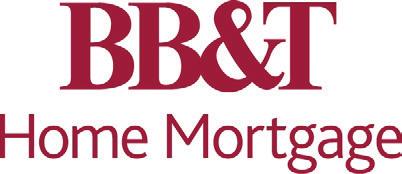
ncrealtors.org • INSIGHT 13 Nationwide Insurance has made a financial contribution to this organization in return for the opportunity to market products and services to its members or customers. Products underwritten by Nationwide Mutual Insurance Company and Affiliated Companies. Home Office: Columbus, OH 43215. Subject to underwriting guidelines, review, and approval. Products and discounts not available to all persons in all states. Nationwide, the Nationwide N and Eagle and More Than a Business are service marks of Nationwide Mutual Insurance Company. © 2015 Nationwide AFR-0236AO (10/15) Learn more about our partnership and special discounts. Here’s to you for loving what you do. Nationwide® salutes your commitment and passion for being a member of NC Association of REALTORS®. At Nationwide, we’re passionate about making a difference, too. It’s just one way we prove that we’re More Than a Business®. nationwide.com/NCAR Local Agent 1-866-688-9144 2016 Annual Sponsors PLATINUM DIAMOND GOLD CoreLogic Realty Executives Southern Region America’s Preferred Home Warranty North Carolina Housing Finance Agency RE/MAX Carolinas Systel Business Equipment Two Men and A Truck zipLogix NC REALTORS® would like to thank all 2016 Annual Sponsors. ® SILVER
TRICK or TREAT?
Does haunted real estate spook REALTORS® and buyers?
 BY: TRACEY GOULD
BY: TRACEY GOULD
In spite of the fun-spirited nature of the season, sometimes consumeroriented retail “holidays” become reallife scenarios for REALTORS® and their clients. Sometimes, REALTORS® find themselves in suspicious Amityville-like environments, while buying or selling properties. That’s right, haunted real estate. Chuckle if you want, but some REALTORS® swear to experiencing paranormal activities during the course of their jobs. So, what do you do if you’re a REALTOR® responsible for selling property that’s reportedly haunted? And if you’re a buyer interested in a haunted property that happens to be your dream home, do you proceed with caution and take the risk, or do you find another dream?
This is exactly the scenario that played out for Don Allison, current senior editor of The Bryan Times daily newspaper in Bryan, Ohio, author of “I Met a Ghost at Gettysburg: A Journalist’s Journey
Into the Paranormal,” and owner of a historic, haunted house. A self-proclaimed paranormal skeptic for decades, his perspective changed after purchasing and renovating his primary residence, which was built in 1835 and is listed on the National Registry of Historic Places.
A lifetime local area resident, Allison grew up admiring the property and heard occasional rumors of it being haunted. When the property was listed, he jumped at the opportunity to purchase it. Not once during the sales process did the seller or the listing REALTOR® mention any indication of the property being haunted, even after bringing the subject up to the seller who had the home in the family since 1869. Allison chalked up
the previous rumors about the property to folklore, and he presumed Ohio was not a disclosure state, so the sellers and listing agent were not required to disclose potential paranormal activity.
Later, when renovations of the deteriorated residence were underway, rumors grew to suspicions, which then exploded into full-fledged “proof” his dream house was in fact a haunted house. The contractor performing the renovations reported hearing footsteps from one bedroom to another followed by a slamming door. Allison experienced the exact same thing — hearing footsteps when no one was there, slamming doors and electronics turning on by themselves. Objects moved or disappeared to never to be found again. All of these events convinced Allison about the haunting, “You feel it — and you know it.”
Since the renovations completed, the haunting has been persistent, but neither Allison nor his wife have been scared or intimidated by the presence of the seemingly benign spirit(s). In fact, they haven’t even contemplated selling the home in large part due to the haunting. When asked if Allison suspected the haunting of negatively impacting property values or neighboring businesses, he immediately stated the opposite. “If anything, the hauntedness adds to the charm and to the value now,” he stated. “The property is now a destination location and attraction on Hwy 127.” The Allisons plan to stay in the house and pass it down to their descendants.
Developer and entrepreneur Ashby Berkley, new owner of the historic and presumed haunted Sweet Springs resort
in Sweet Springs, West Virginia, wasn’t deterred from purchasing it last year because of rumored spiritual inhabitants. “Personally, I haven’t experienced paranormal activities at either of the hotels I’ve owned and operated,” stated Berkley. “However, I’ve had guests and employees claim to have experienced strange things at both properties. Because I personally didn’t witness them, I can’t confirm nor deny their existence.”
Despite his lack of personal experience with the paranormal, Berkley isn’t dismissive of the possibility. In fact, he “celebrates the Sweet Springs history and everything that comes with it — even rumored hauntings.” However, he won’t promote this possibility for the sake of profit, as it doesn’t speak to the desired luxury brand he’s trying to achieve for this future destination resort and spa when it’s restored to its former glory. “People would assume anything paranormal is evil and wouldn’t want to be around it.”
How do you sell haunted real estate?
In a study conducted by Wright University, houses where murder or suicide — leading causes of hauntings — have occurred sell 50 percent slower and at a cost of 2.4 percent or more lower than average homes. One way to proactively overcome this obstacle, according to Donna Henes, space clearing and real estate blessing expert in Brooklyn, New York, is to cleanse a home. Henes states there are all types of “hauntings” and no two hauntings are alike. In fact, sometimes a “haunting” isn’t a haunting at all.
14 INSIGHT • November 2016
There are also just bad or lingering energies where there once has been fighting or violence. If it’s bad enough, people feel bad in their environment — but it’s not necessarily because of ghosts. For this reason, Mama Donna, as she is often called, recommends REALTORS® self-perform or hire a priest or cleansing consultant to perform a thorough spirit cleaning when selling or buying property — during final move out and before move-in — to remove all negative energies and spirits by encouraging peaceful exits. This real and practical gesture of goodwill for spirits and negative energy is a proven strategy — whether or not you believe in the paranormal. It is a ritual practiced internationally and still embraced by many faiths.
Henes has appeared on national television programs, including Million Dollar Listing New York, and has a certain level of credibility in the real estate industry as a cleansing expert. In fact, in one episode, she was featured as the spiritual cleanser for a million dollar listing in New York — a civil war-era Manhattan property in an upscale neighborhood. The comps in the neighborhood were between $14-28 million, and this house was on the market for $2-4 million and still would not sell. The listing REALTOR®, Ryan Serhant, associate and real estate broker for Nest Seekers in Soho, New York, spent a lot of time in the home becoming familiar with the property, and it terrified him. He soon realized why the listing wouldn’t sell and why it was so undervalued compared to the comps. Serhant called Henes to do a space clearing and blessing in the home. When Henes arrived, she felt what the REALTOR® experienced earlier; it was almost a claustrophobic energy even though the home was a five-story house. Serhant reported spooky, ghostlike entities, objects were picked up and moved, and strange sounds without a source were heard constantly. While Henes never experienced ghosts in the residence, she admits she didn’t spend near as much time in the home as the REALTOR®.
During the cleansing and blessing process, Henes covered the whole house, using materials like sage and burning herbs from Palo Santo, Ecuador. Elements like holy wood — a strong cleanser — were burned in all corners of the home. Serhant was given a bell to ring, since
loud sounds burn away bad energies according to cross-cultural beliefs. Every room, drawer and closet was combed through, and then Henes went back and burned sweet grass, which is meant to invite in sweet spirits. Native American tobacco was sprinkled throughout, which is a traditional Thanksgiving offering. This says “thank you” to ghosts for not bothering people, as well as for allowing new occupants to move in. This ritual was carried out on all five floors, and then the process was considered complete. The next morning, the REALTOR® indicated the house felt so much better; he felt a sense of peace. The house sold shortly after.
Folklore? Coincidence? Real ghost eradication? Serhant believes it was real. You be the judge.
Buying haunted real estate?

Henes says, “Don’t walk away just yet.” If a homebuyer loves the place — but feels it’s a little negative — suggest a spiritual cleansing. The home should be cleaned anyway physically. It doesn’t take all that much to add a spiritual element to sweep away negative energies. This process makes the property your own — psychologically and spiritually. This is the opportunity to claim it from the negative energy and the spirits. This is an important step, too, for REALTORS® to make listings more appealing spiritually, enabling faster transactions and more satisfied buyers. This process is now a major practice similar to staging a house, so people can imagine their life there. She encourages having a spiritual staging, stating it makes the home look and feel good.
Disclose or Not to Disclose?
Do REALTORS® and owners have a legal obligation to disclose if a property is presumably haunted when listed or during the due diligence process? What precedent exists for such disclosures? Largely, this depends on what state the property is located in and whether or not they have such disclosure laws in place. Usually, disclosure responsibilities are based on material facts. Paranormal activities aren’t generally categorized as a material fact, but if the paranormal activities are based
on a gruesome death that occurred on the property, that could be considered a material fact. There are usually statutes in place with timeframe restrictions.
In New York, for example, one famous case involved a buyer suing the seller and REALTOR® for failing to disclose paranormal history in a property that was recently sold. While the judge didn’t rule the disclosure rules were violated, he did rule in favor of the sellers and voided the sales contract. In North Carolina, sellers and REALTORS® do not have to disclose if a property is haunted or if anyone died or was killed in the home. However, if asked, responsible parties cannot give a misleading answer. The Real Estate Commission’s “License Law and Rule Comments" publication states, “… an agent has a duty to disclose to his or her principal any information that may affect the principal’s rights and interests or influence the principal’s decision in the transaction.” Will Martin, general counsel for NC REALTORS®, stated it’s his opinion that a buyer agent who is aware of suspected paranormal activity should disclose it to his or her client. “If I were a buyer, I’d want to know that fact because even if I didn’t believe in haints myself, I might be concerned about the potential impact of suspected paranormal activity on resale one day.” He also advises listing agents to disclose the issue with the seller, advising, “Even though there may be no legal obligation to disclose, it’s the kind of thing the buyer is going to find out about sooner or later, and it may be prudent to disclose what is known to avoid a potential ‘cover up’ complaint by the buyer.”
Ultimately, if you find yourself in a situation where you believe you are buying or selling haunted real estate, your mission should be to ensure the house feels good — spirits and energy included — for the new and potential owners. Similar to an agent baking cookies, a healthy and positive energy resonates with prospective buyers immediately. People are susceptible to energy whether or not they can really rationalize it. Everyone knows if a property feels good or bad immediately upon entry, but prospective buyers can’t always define why. When in doubt, bake brownies. If that doesn’t work, consider a spiritual cleanser.
ncrealtors.org • INSIGHT 15
Your Voice, YOUR VOTE
The potential impact of the 2016 elections on the nation’s housing market and how REALTORS® can affect change.
BY: SETH PALMER | POLITICAL COMMUNICATIONS AND REGULATORY AFFAIRS DIRECTOR
In a few short days, millions of Americans will go the polls to cast votes for every elected office from local county commissioner and state representative to congressman, senator and the next president of the United States. Your vote impacts the future direction of the state and country, but even more importantly, it has a major impact on your business. Let's take a look at those at the top of the ticket and how their policies may ultimately trickle down to impact your business.
The candidates
Over the past year, you have undoubtedly been exposed to candidates for any number of elected offices. Whether it is through television advertisements or news stories, online posts or even traditional mail or yard signs, it’s actually difficult to avoid information about the elections. So, you should be acutely aware of the major candidates for office, namely those seeking the office of president: Hillary Clinton and Donald Trump. While there are also third party candidates in the race, namely Gary Johnson representing the Libertarian Party and Jill Stein representing the Green Party, their views are not as well-known nor are they included much in the discussion. Given their extremely low potential to impact the ultimate outcome of the election, their specific policy proposals are not analyzed here.
But that still leaves the policies put forth by both Clinton and Trump. What effect could they have on housing policy, and how might that impact your business, your clients and ultimately the real estate industry?
Both have generally agreed upon the mortgage interest deduction, and while neither candidate has made the deduction a part of their plans, they have not taken stands against it either. Clinton has proposed a cap on all deductions of 28 percent, and Trump has not presented a formal plan for deductions. As one of the most important deductions for homeowners and the real estate industry, this will remain a key priority for REALTOR® advocacy.
As a note prior to this discussion, NC REALTORS® and the National Association of REALTORS® do not endorse candidates for president. These statements are intended to be for informational purposes only and not endorsements of or support for a particular candidate.
DONALD TRUMP
Throughout his candidacy, Trump has presented numerous perspectives on various policies and legislation that he would like to change if he were to be elected. From immigration to taxation, he has not been without opinions. But, with an eye towards the potential impact that his presidency could have on the country’s housing industry, it is important to first note that Trump is a real estate developer with numerous successful properties throughout the United States and abroad. While not a REALTOR® himself, it is clear that he understands many of the core issues facing the industry.
In an analysis by realtor.com® during the primary elections, while he didn’t present any specifics regarding homeownership, Trump did lay out multiple tax policies that could have positive impacts on the ability of individuals to purchase homes. Throughout the campaign, some of the specifics have changed, but generally speaking, he proposed multiple decreases to the tax rates for both individuals and businesses. For example under Trump’s plan, business owners would pay a lower tax rate, maxing out at 15 percent. While this plan certainly has potential positives, economists have raised multiple questions regarding the actual benefit that it will have for middle income individuals, as well as the impact that these types of tax cuts could have on other economic measures such as interest rates. So what does all this mean? While Trump undoubtedly has knowledge about the real estate industry, his potential impact on housing opportunity and homeownership is unclear. If he is elected on November 8, REALTORS® will need to closely monitor his policies to ensure they protect future opportunities for homeownership.
16 INSIGHT • November 2016
Stay informed, stay engaged
This year’s election will undoubtedly have an impact on the future of the housing economy, and ultimately the real estate industry. As is the case with any election, citizen engagement, and especially REALTOR® engagement, is of paramount importance. Voting is by far the easiest and most effective way ensure your voice is heard across all levels of government. We’ll see you at the polls on November 8.
HILLARY CLINTON
Having served as first lady, as U.S. senator from New York and as secretary of state under President Barack Obama, Clinton has an unmatched policy resume. She has been widely recognized for her policy specificity, but at the same time, concern has been raised regarding the potential effectiveness (or ineffectiveness) of her proposed policies in the event that she is elected in tandem with a Congress of the opposite party.
When examined in the same realtor.com® review, Clinton was found to be the only candidate during the primary election process to have presented a plan on housing. Clinton’s housing plan centers around a $25 billion housing program, providing up to $10,000 in matching funds for down payment for households which earn less than their respective area’s median income. Additionally, her plan proposes an increase in the number of affordable rental properties in areas with “good schools and employment opportunities” and establishes more low-income housing tax credits to help support renters’ opportunity for future homeownership.
While each of these proposals have the potential for significant benefit in the housing industry, they, too, lack additional details to fully judge future success.
Clinton’s formulation of a plan is certainly a step in the right direction, but it will be necessary to judge the plan’s ultimate success in the event that she is elected.
TOOLS & RESOURCES
NC REALTORS® developed numerous tools to ensure all members are informed as they go to the polls.
Here are a few quick tips:
• Early voting will conclude at 1 p.m. on Saturday, November 5
• Polls across North Carolina will be open on Tuesday, November 8 from 6:30 a.m. until 7:30 p.m.
• If you are still in line at the time of the polls closing, you WILL be allowed to cast your ballot
For early voting locations, your polling place and candidates support REALTOR® issues, please visit ncrealtors.org/vote. Follow us on Facebook and Twitter for live updates leading up to Election Day. @ncrealtors
Congressional actions and REALTOR® priorities
In addition to the policies presented by those at the top of this year’s ballot, the policies that will be put forth by the members of the incoming 115th Congress will certainly have a significant impact on the future state of the housing industry. Below is a quick list of some of the REALTOR® priorities being watched in the coming legislative session, as reported by REALTOR® Magazine.
Patent trolls
These companies buy and use overly broad patents to try to extract licensing fees from unsuspecting end users of their technology. NARbacked legislation to curb patent trolls, including those who target real estate companies, has been introduced in the U.S. House and Senate and could be taken up in the new Congress.
Mortgage interest deduction
Lawmakers and administration officials have drafted proposals to scale back the MID and limit who can claim it. One plan would effectively repeal the MID for the vast majority of home owners. This change could have vast negative implications on home prices and incentives to own versus rent.
1031 like-kind exchanges
Lawmakers have begun discussing eliminating or curtailing the deferral of tax liability when owners exchange a commercial or investment property for another one of similar value. These tax-deferred like-kind exchanges are being targeted under tax reform proposals of both parties.
Flood insurance
Lawmakers will be looking at federal flood insurance in 2017 because the federal government’s program for making federally backed flood insurance available to home owners will be up for reauthorization. NAR supports long-term reauthorization of the program and improved flood mapping, streamlined federal assistance for home owners who want to move to higher ground, and program changes that encourage private insurers to offer competitive lines of insurance to home owners.
ncrealtors.org • INSIGHT 17
the next frontier in real estate
 BY: TRACEY GOULD | DIRECTOR OF COMMUNICATIONS & MARKETING
BY: TRACEY GOULD | DIRECTOR OF COMMUNICATIONS & MARKETING
18 INSIGHT • November 2016
REALTORS® and developers are constantly looking for ways to better serve their clients, while positively impacting their business. From customer service to promotion to sales, closing and maintenance, technology has played an important role in the success of REALTORS®. One of the latest high-tech tools to hit the market is the unmanned aircraft system (UAS) or drone, and despite the perceived challenging nature of the new Federal Aviation Administration (FAA)’s guidelines, utilizing drone technology is proving to be extremely valuable for REALTORS® in North Carolina and beyond. But is it worth the investment, and how can REALTORS® utilize the technology in their business without breaking the bank?
Sales
One of the most obvious uses of drones is for commercial and residential sales. Due to a drone’s altitude capabilities (restricted by the FAA to 400 feet above ground level (AGL) or within 400 feet of a structure if above 400 feet AGL), the unique point-of-view offered by a drone is a huge benefit for REALTORS®. Perspectives, and therefore photography and videography from this vantage point, were previously only capable with small, manned aircraft (helicopters and small airplanes). Now, nearly every citizen with proper equipment, training and an appropriate FAA certificate can own and fly drones for commercial and personal use. REALTORS® can showcase their listings in ways that were previously not practical or economical.

Want to showcase a single family residential listing’s community? A short video shot with a drone 35–50 feet above the property can highlight the charming neighborhood, unique amenities and surrounding landscape that simple photographs aren’t capable of showing. Uploaded to your listing sites and marketing platforms, prospective buyers can have access to never-before-seen views. Ultimately, this tool reduces the house hunting time investment, and therefore, the overall transaction process. Likewise, drones can be very effective to show context and adjacencies for commercial properties and campuses, eliminating the need for prospective investors, buyers or lessees to visit every potential property. Robert Koenekamp, CEO of AERIALLOOK, a Raleigh, N.C. technology and service company changing the way consumers experience real estate through pioneering drone, 3D and VR technologies, put it this way: “Content is king, and vivid drone videos provide the content needed to stand out in a saturated market.”
By providing as much information as possible up front, buyers can make more informed property search and buying decisions — even before picking up the phone to call the listing broker. Similarly, drone footage makes a broker’s sales effort that much more compelling through 360-degree video coverage from ground level to up to 400 feet AGL.

ncrealtors.org • INSIGHT 19
How REALTORS® can utilize drone technology in their business without breaking the bank.
Land Development
With acres of raw land — whether wooded, pasture, waterfront, rough terrain, etc. — a drone can accomplish much more than humans can by car, ATV or foot. And it can do it so much faster. In fact, FAA guidelines allow a drone to travel up to speeds of 100 miles per hour. When developers are working with large tracts of land, especially with limited to no access, drones become the “eye in the sky,” saving developers time and money by preventing unnecessary tree clearing, cutting in access roads and identifying benefits and challenges of the land at hand — before closing and for a fraction of the cost. This allows for more informed investment decisions and increased buyer satisfaction.
Surveying/Engineering
Drones can be particularly beneficial as civil engineering tools, capable of surveying property and creating topographical surveys much more effectively than the standard surveying equipment. Add in tools such as infrared and spectral analysis, and the drone becomes an airborne mold, water infiltration, fungus and corrosion detection device capable of detecting structural issues.
Surveyors and engineers will particularly benefit from incorporating a drone and its footage into their toolkit and marketing mix while providing real estate services, “For me, drones are like a measuring tape or laser meter,” stated Sergey Kobelev, owner of Welko-Tech, LLC, an inspection and technical consulting company focused on condition assessments and building envelope investigations in
Greensboro/Winston-Salem, N.C. He is also a licensed FAA drone pilot, and to him “it’s just another tool.”
Kobelev is using research-grade and forensic technologies for commercial facility management projects. He works directly with REALTORS®, brokerages, investors and owners to shorten the sales transaction process, increase sale prices and improve the REALTOR®-consumer relationship.
Due Diligence
For commercial and residential REALTORS®, owners and investors, drone-aided structural investigations have been critical to identifying infrastructure and air quality issues not normally visible to the naked eye or within the line of sight. By flying above the property, drones can identify improper draining slopes that cause ponding on top of structures, which leads to water infiltration issues, mold and other airborne contagions, as well as structural and corrosive issues with steel, chimneys, brick, stone and CMU masonry and terracotta facades several stories high. The drone can detect the slope of a building’s roof and the slope of the ground to detect if water flows to or from buildings, as well as detect problematic wet insulation under the punctured roof membrane with infrared and near-infrared (NIR) spectrum camera.

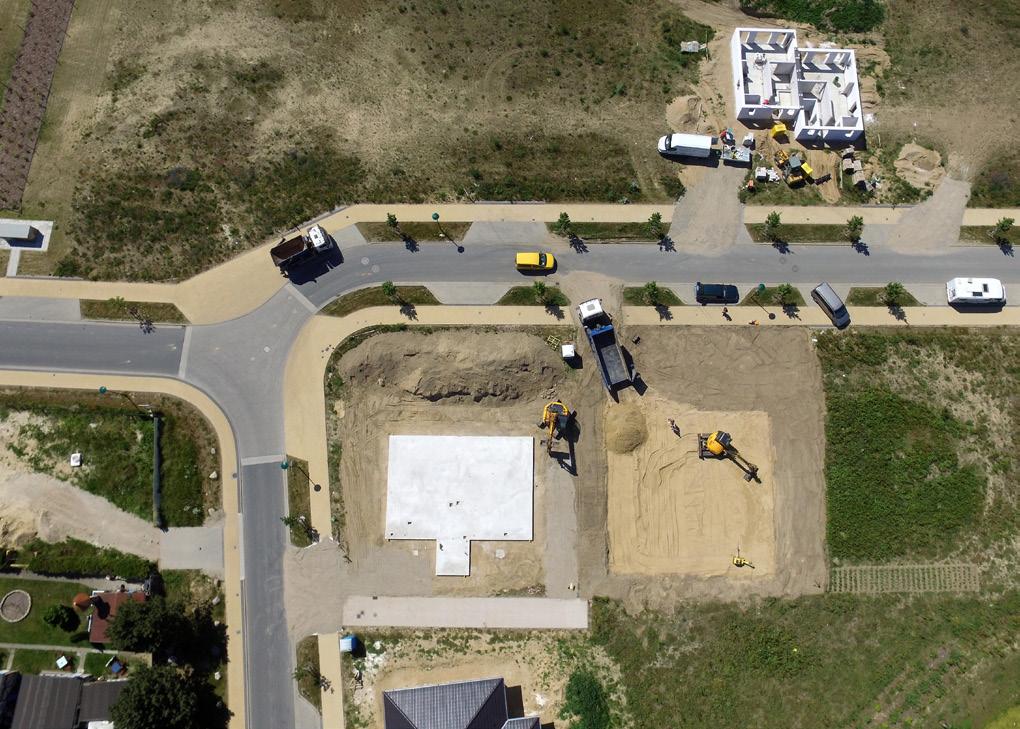
Aerial observation and documentation has proven to be an excellent exploratory and diagnostic tool during the due diligence process, which can inform potential investors and buyers of current conditions that need to be corrected before the sale can be closed.
Maintenance
One of the greatest advantages of a drone is for preventative and corrective maintenance purposes. By hiring an appropriate consultant with drone capabilities to evaluate a property before listing it, REALTORS® and owners can proactively identify and quantify potential repairs needed before appraisal and inspections are conducted. Drones are the ideal tool to identify roofing issues (leaks, missing tiles, ponding, etc.), cracks in the facade, failed sealants, problems with flashing, missing bricks or caps on chimneys, broken windows on commercial properties and more.
Benefits
Drones have numerous undeniable benefits for REALTORS® and the real estate industry. Overall, they provide a more informative perspective when evaluating real estate properties. At the same time, REALTORS® can obtain
20 INSIGHT • November 2016
DRONES
According to Koenekamp, “Home buyers do not want to look at real estate, they want to experience it, and drone tours provide them the ability to immerse into a potential home from the comfort of their computer or smart phone.”
high-quality, professional content at an affordable price — either from their own use of the equipment or from service providers — that has not historically been possible with traditional production capabilities, requiring large crews, expensive equipment and large budgets. REALTORS® now have an affordable way to differentiate their brand and listings with drone-aided content.
Listings with drone footage also receive more views than listings with traditional photography. Bold Content claims real estate listings with video receive 403 percent more inquiries than those without video. According to Koenekamp, “Home buyers do not want to look at real estate, they want to experience it, and drone tours provide them the ability to immerse into a potential home from the comfort of their computer or smart phone.”
Outsource or Self-perform?
The question is no longer should you incorporate drone videos in your marketing mix and use the technology as a sales and due diligence tool. The real question is should you invest in the technology, training and licensing in-house, or should you outsource to an experienced drone aviation consultancy. The recommendation for most smallto mid-size brokerages is to keep the technology and production in-house in the beginning to build the business to the point where it can afford to outsource because a REALTOR®’s time is better invested elsewhere. Meanwhile, larger firms find it difficult to streamline the quality. Consultants can produce a beautiful video without the cost and stress associated with hiring, insurance, editing, etc. Overall, unless a large brokerage has a dedicated in-house multimedia expert with the necessary equipment, licenses and training, it’s recommended that REALTORS® focus on what they do best and leave the drones to the experts.
Costs
The best drone model for a real estate agent to invest in, according to Kobelev and Koenekamp, is a DJI Phantom Professional 3 or Phantom Professional 4, depending on budget. The

Phantom Professional 3 is a great tool at an affordable cost of $900. The latest model, Phantom 4, starts at $1,200 and has a few more features, such as sense and avoid, which can be helpful when learning to fly on your own. However, photographer and videographer, John Salem of Harrisonburg, Virginia, uses the Yuneec Q500 4k. He states the best drones for real estate purposes have at least four propellers, but six or eight propellers are even better, since they can fly in higher winds and maneuver more effectively. Salem remarked, however, “Like a photographer, it’s not the camera [that’s important], it’s the [person] behind it.”
Fees for consultants to manage the videography and production differ from pilot to pilot, consultant to consultant. It is recommended that you vet potential consultants accordingly, verify licenses, check references and review the pilot’s portfolio. Additionally, thoroughly describe the desired project and seek fee proposals ahead of time, so you can determine if your budget has room for professional drone footage and if the fee adequately corresponds to anticipated ROI.
Future of Drones in Real Estate
With the recent FAA guidelines, while providing restrictions for private and commercial use for unmanned aircraft, the agency also set the stage and permitted use of this technology for real estate professionals. “The FAA 's new drone rules allow service providers and REALTORS® the freedom necessary to innovate their industry,” remarked Koenekamp. “The old rules stifle growth, and they disservice REALTORS® and home owners by prohibiting the use of technology that can provide more information to the buyer and a broader reach for the seller.”
For more information on drones and their applications, there are a number of professional associations dedicated to the technology, including UAV Systems Association (UAV). NC REALTORS® maintains updated information related to drones on its website. The National Association of REALTORS® also provides a number of resources on their website dedicated to this technology and its applications in the real estate industry.
Gear Guide
DJI PHANTOM PROFESSIONAL 3

Cost: Around $900
Features:
• Complete, ready-to-fly 4K camera drone

• Super easy to fly
• Advanced camera trick shots
DJI PHANTOM 4
Cost: Around $1,200
Features:
• Most advanced 4K camera drone yet
• Complete and ready to shoot
• Object detection and collision avoidance
• Tap-to-follow and tap-to-fly flight modes
• For amateur & professional applications
YUNEEC Q500 4K TYPHOON
Cost: Around $700
Features:
• A complete, ready to fly HD camera drone
• Trick shots: Follow-Me, Return Home
• Safe Mode prevents flying into operator
Source: BestDroneforTheJob.com
ncrealtors.org • INSIGHT 21
BY: TRACEY GOULD | DIRECTOR OF COMMUNICATIONS & MARKETING | PHOTOS PROVIDED BY TINYHOUSEEXPEDITION.COM




Tiny houses are trending online, not in real life
early everywhere you look online — blogs, social communities, do-it-yourself television programming, and design magazines — tiny houses are celebrated as the newest trend in residential real estate. A quick search on Google for “tiny houses” generates 9.4 million results. Clearly, there is a virtual tiny house movement. However, tiny houses aren’t nearly as prolific in real life as they are online.
It is unclear how many actual tiny homes are in existence and occupied, as a census doesn’t exist to track them. TinyHouseMap is an interactive, crowdsourced tool that maps these unique communities and structures across the world. A quick glance at the United States, and it’s safe to assume hundreds of these communities and/or homes exist. One of the challenges with this data, however, is that it requires tiny home owners to self-report, and understandably some homeowners don’t want to publicize their location or the size of their home. The National Association of REALTORS®’ guide estimates less than one percent of all homebuyers in 2015 purchased a home that would be characterized as tiny or small (a home less than 1,000 square feet). This data hardly equates to a “movement.”

So why are tiny houses so popular — even if only on television and online? Aside from their aesthetically pleasing construction (the “adorable” factor), they offer practical solutions for various socio-economic challenges people face in the United States, as well as urban infill and neighborhood revitalization — all of which have a direct and positive impact on property values and sales prices for neighboring properties. Tiny homes are promoted as a compelling solution to end homelessness once and for all due to their compact size, purchase price and lower maintenance costs. Due to their small footprint, these trendy homes that average 186 square feet are also appealing to the environmentally-conscious homebuyer compared to the new American home purchased in 2016 at median of 2,100 square feet, according to NAR. A smaller physical footprint equates to lower energy and natural resource usage. Similarly, a smaller footprint typically equates to lower price points, providing affordable housing options to several demographics (individuals, young couples, seniors) who want to purchase a primary residence — either first-time homebuyers or empty nesters downsizing — but have been deterred due to the average home price in their markets.
Tiny houses on average cost $23,000 if built by the owner compared to traditional new homes nationwide, which averaged $353,600 in August 2016, according to the United States Census report. Of course, the cost of tiny houses all depends on the quality and type of construction materials and the furniture, fixtures and equipment (FF&E) selected for the design. For high-end tiny houses with designer furnishings and fixtures, the price can rival that of a modest three-bedroom single family home in some markets. A tiny house doesn’t necessarily equate to a tiny price.
ncrealtors.org • INSIGHT 23
Clearly, there is a virtual tiny house movement. However, tiny houses aren’t nearly as prolific in real life as they are online.
Demographics
So, who’s the target demographic for tiny houses? The Tiny Life reports 10 percent more women own tiny houses than men do. Typical homeowners are 50+ years old, twice as likely to hold master degrees or higher, earn an average of $478 more with a per capita income level of $42,038, and hold less credit card debt than the average American. These figures aren’t surprising at all to Michael Saunders, principal of Home Accessibility Consulting in Toronto, Canada, who has been designing tiny houses — six in total — for the past three years specifically as garden or in-law suites. Each one is situated on properties with larger, main homes and incorporated universal design techniques to enable seniors or the handicapped full access to the space. This serves as an ideal option for full-time in-law residences, “Tiny houses on the site of a larger home definitely increase property values,” stated Saunders. “A lot of people are looking for something that works for in-laws, and tiny houses are uniquely positioned to take advantage of that market.”

Other Uses
Marin County, California architect, Heidi Richardson, principal owner of Richardson Architects, has a different perspective. “Some people actually think this movement is about primary residences,” stated Richardson. Her boutique firm has been designing small structures since 1983 but more so in the past six years. She’s finding the primary uses for small and tiny houses are not primary residences. Instead, she sees the majority of these structures more popular as bath or guest houses, such as the Inverness Bathhouse. This tiny house, comprised of 260 square feet, is situated along the Northern California coast and hosts a group of small children each year as part of a summer family camp. Designed to blend in with its natural surroundings, innovative design techniques were included to maximize the use of the space and give the impression the structure is actually larger than it really is. This design strategy only helps to improve resale values in the future.
Challenges
Finding a municipality that allows single tiny house structures or communities remains the greatest challenge. Unfortunately, most zoning laws across the United States have strict guidelines preventing people from occupying tiny houses — even if you own the property. Yes, it’s illegal to occupy a tiny house full-time as a primary residence for the majority of the United States. However, select municipalities are slowly considering changes in zoning laws and building codes to permit such uses for single family residences and tiny home communities. Alexis Stephens and Christian Parsons, filmmakers, producers and storytellers, from Tiny House Expedition, are currently in the midst of a two-year cross-country expedition in their personal tiny house
to increase awareness about the values and benefits of tiny house living. Their mission is to create a documentary series on the tiny house movement by celebrating like-minded homeowners and blossoming communities. They’re advocates of positive change, “For us, the community experience is where the magic really happens,” Stephens stated. Self-proclaimed nomads, travelers and alternative dwellers, they feel their experience is changing perceptions about what living really means — and thinking big but building small. From their perspective, which has evolved during their 24,000-mile journey, the tiny home movement is truly a home revolution.
The advocacy playing out on the blacktops across the United States by Stephens, Parsons and other tiny home dwellers is paying off. Municipalities are paying attention. The conversation has started, and in some locations, zoning regulations have been changed to embrace tiny home ownership and communities. The root of the problem in the United States is that we’ve built a legacy of large-home living — even an 1,800 square-foot home is considered “small” by most homebuyer’s standards today. In fact, the average size for single family residences has grown from 983 square feet in 1950 to 2,657 square feet in 2016, according to the National Association of Home Builders. As builders develop more homes for the entry-level homebuyer, the average size is expected to decline, which is typical for post-recession recovery. Therefore, most municipalities don’t know how to handle tiny homes. They don’t know where to park them. They don’t know how to classify them. They don’t fit in today’s zoning and building code guidelines. Normally, Stephens and Parsons have to park their home in an RV park or a Walmart parking lot (the retail giant has been very accommodating and welcomed Tiny House Expedition and others with open arms).
Some communities that have embraced tiny living and made such communities legal include Fresno and Ojai, California, Las Vegas, Nevada, and Rockledge, Florida. In Las Vegas, a tiny house movement may be brewing. Residents of Llamalopolis (AKA Airstream Park) have staked their claim in the City of Lights, creating an urban tiny living oasis in what once was a run-down lot (previously an RV park) in downtown. Launched in 2014 as a social experiment by Zappos CEO and Llamalopis star full-time resident, Tony Hsieh, this community is home to more than 30 tiny homes and Airstreams. The two-week experiment turned into a highly-
24 INSIGHT • November 2016
MOVEMENT OR HYPE
functioning, sustainable community — a family — that is still just as vibrant today as it was when it started. Complete with a community kitchen and living room, crash pads for guests, and Wi-Fi, the community is ripe with spontaneous interaction, socializing and pets — including, you guessed it, llamas. Their next goal is achieving net zero energy — one tiny home at a time.

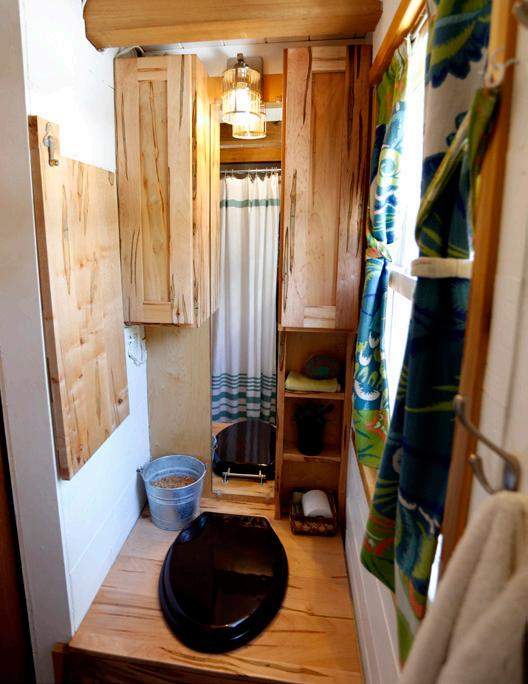
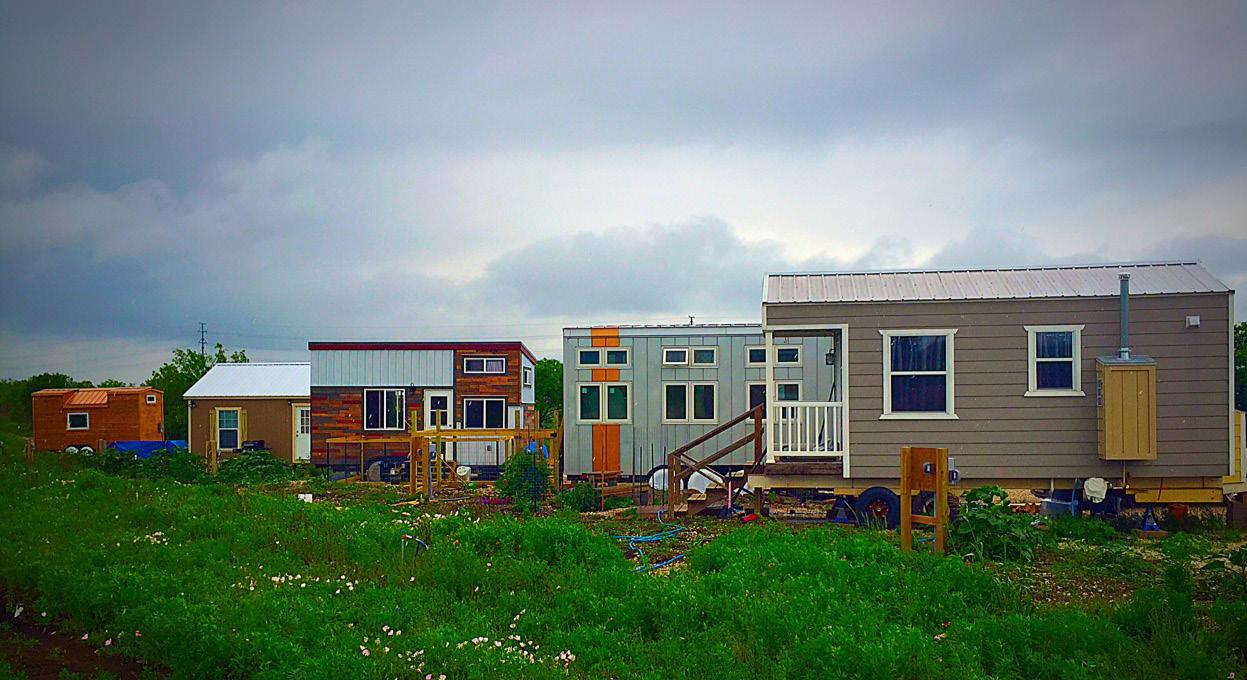

Closer to home, tiny home communities have started to pop up around North Carolina, especially in the western part of the state. Union County is one of the few counties in the country with no minimum size requirements for homes. One community in Flat Rock, The Village of Wildflowers, allows interested consumers to explore, buy, or rent a tiny house where the average size is 400 square feet. Camp Tiny House of the Triad in Kernersville is a developing tiny house community and eco-village. Highland Lake Cove is an eco-village in Flat Rock where home sizes range from 350 to 850 square feet. In Chapel Hill, Wildwoods is a new community for tiny homes and gardens that positions itself as a farm cooperative. And in Mitchell County, High Cove is an ecovillage with architectural and landscape guidelines similar to a homeowner’s association.
Meanwhile, larger cities like Winston-Salem, where current regulations are unenforceable, are actively discussing rules and regulations as they relate to tiny houses and secondary dwellings on single family lots. A committee addressing the codes hasn’t come to a consensus (as of this writing) on how to fairly plan for this real estate segment, but an article in the WinstonSalem Journal in mid-August indicated they will continue to discuss proposed rules in the coming months. If given the option, most municipalities will embrace vibrant, micro communities over blighted lots any day. That’s what advocates like Alexis Stephens and Christian Parsons are working towards.

ncrealtors.org • INSIGHT 25
If tiny house living appeals to you, and you want to explore a community to “try it before you buy,” Tiny House Community has a comprehensive list of communities for you to explore. Meanwhile, share your thoughts on the #tinyhousemovement with us on our social channels.
WAYS TO ENERGY COSTS
Heating and cooling costs are one of the most expensive utilities in every home. No matter where you live, the conservation of energy to reduce costs is becoming more and more important for sustainability and your wallet. Here are seven ways homeowners can reduce energy expenses, especially during winter.
 BY KIRK STANFORD | SKA CONSULTING ENGINEERS
BY KIRK STANFORD | SKA CONSULTING ENGINEERS
ADJUST THERMOSTAT CONTROLS. This is one of the easiest ways to help control wasteful energy expenses. Recommended heating settings during the winter is 68 degrees F during the day. Energy.gov reports that you can save as much as 10 percent a year on heating and cooling costs by simply turning your thermostat back seven to 10 degrees for 8 hours a day from its normal setting. Programmable thermostats can make this extremely easy and effective. Program the daily settings at the start of the cold season and let the thermostat do the work.
SEALING AIR LEAKS. Air leaks are probably the No. 1 cause for energy loss in a home. The sealing of air leaks around windows, doors, wall penetrations, cracks and roofs helps to prevent cold air from creating drafts or cold spots in your home during the winter months. It also helps to control unwanted moisture problems inside the home. Expected energy savings can range from 5 to 30 percent depending on the amount of air leaks present in a home. Remember to only use sealants and weather stripping that are compatible with your home materials. Noncombustible sealants should be used when sealing gaps around chimneys and heat producing devices.
1 4 2 3
REPLACE OR SUPPLEMENT OLD ATTIC/WALL INSULATION. Insulation in your attic and walls (if installed) is your best line of defense for keeping cold and warm air from escaping or intruding your home. Depending on the installation, type, age, thickness and condition, your insulation could be less effective in its performance than you think, especially in older homes. Replacing or supplementing insulation can see significant improvements in the energy performance of a home, reduce the impact on your HVAC systems and add value. If the attic hatch is located above conditioned space, ensure it is also well insulated, sealed with weather stripping and closed tightly. In addition, adding insulation to your home could qualify for tax credits come tax season.
CRAWL SPACE PROTECTION. Maintaining the insulation below the flooring and around pipes and plumbing within unconditioned crawl spaces exposed to the exterior reduces the potential for freezing pipes and cold spots within the home. Most areas of the country are requiring a minimal R-value of 25 for floors and R-6 for ducts and pipes. Large amounts of moisture can reduce the effectiveness of insulation, generate air quality issues within the home and promote structural damage; therefore, controlling moisture by the installation of a vapor barrier over the ground and having good ventilation is also essential.

26 INSIGHT • November 2016
5 7
HVAC EQUIPMENT. To optimize performance of your home’s HVAC system, regular inspection, cleaning and filter replacement every one to two months is suggested. A more comprehensive check prior to the heating or cooling season could pay dividends in the dead of winter or summer. If your unit is more than 15 years old, you should consider replacing your system with a newer, more energy efficient unit to help reduce energy consumption in your home. All ductwork should also be well sealed and be properly insulated.
6
LIGHTING. Energy from lighting accounts for about 10 percent of your electric bill. Replacing light bulbs in your home with more energy-efficient bulbs, such as energy-saving incandescents, compact fluorescent lamps (CFLs) or lightemitting diodes (LEDs) is not very expensive. Your electric utility company may even offer rebates, free replacement bulbs or other incentives for purchasing energy-efficient lighting.
WINDOW REPAIRS/REPLACEMENT. Many windows on the market are now designed to be energy efficient to help reduce thermal bridging between the interior and exterior air. If it is time for replacement in your home, energy-efficient windows are your best bet. If window replacement is not on your horizon, consider adding storm windows and/or replacing the gaskets around the glass and perimeter sealant joints to help prevent air and moisture leaks in the window units.
Many times homeowners find it beneficial to have their homes assessed by a professional to help them pinpoint exactly where the house is losing energy and identify what they can do to save money. This assessment is more complete than the seven items listed here, and typically identifies health and safety risks that might exist in your home. Home energy audits range in costs from $300 to $500, but are sometimes subsidized by local governments or utilities. Consider having your home assessed if you believe you are paying too much for energy or have an inefficient home. For those do-it-yourself-type homeowners, a good resource for performing your own home energy audit can be found at Energy.gov.
ABOUT KIRK
Kirk Stanford, PE is a Project Manager in the Greensboro Building Solutions Department. Kirk is responsible for design and repair of all types of building envelope systems and is SKA's WUFI expert, regularly evaluating how different building types and components perform against the weather throughout the year.

ncrealtors.org • INSIGHT 27

true false OR
1. According to an article appearing in the Real Estate Commission’s May 2016 Real Estate Bulletin entitled “Brokers: Do Not Require Closing Attorneys to Disburse Commissions,” it is not okay to ask the closing attorney to split up the commission between the listing and cooperating firms and their individual agents.
True False
2. If a broker is taking a listing on a 4-bedroom house that is on a septic system, but can’t confirm the number of bedrooms permitted by the system because the county’s records don’t go back that far, it’s okay to advertise it as a four-bedroom without doing anything else.
True False
3. A buyer agent may always rely on the listing agent’s reported square footage of a property being purchased by the buyer agent’s client.
True False
Are you up for a quick challenge? Take Forms
Guy’s latest quiz in the privacy of your own office. It’s a 10-question true/ false test based on recent Q&As on subjects including disclosure, advertising and, of course, forms. May The Force be with you!
BY: WILL MARTIN | GENERAL COUNSEL
4. A seller under contract using the Offer to Purchase and Contract may use email to notify the buyer, through the buyer agent, to deliver immediately available funds within one banking day if the Due Diligence Fee or Initial Earnest Money Deposit hasn’t been timely delivered.
True False
5. It would be permissible for a REALTOR® to advertise another broker’s listing in a postcard mailing without authorization from the other broker so long as the other broker is identified in the postcard as the listing agent.
True False
6. It’s okay to leave the Notice Information section of the Offer to Purchase and Contract blank.
True False
7. If a property is under contract but the Initial Earnest Money Deposit hasn’t been timely delivered, the seller may terminate the contract immediately and sign a contract with another buyer.
True False
8. It’s acceptable for a broker’s client to cross out the “Delay in Settlement/Closing” paragraph (paragraph 13) in the Offer to Purchase and Contract.
True False
9. According to the Offer to Purchase and Contract, bathroom wall mirrors are fixtures regardless of how they are attached.
True False
10. A drone can be used for commercial purposes only if the operator gets a "Section 333 waiver" from the Federal Aviation Administration.
True False
HOW DID YOU DO?
Answers on next page
To access the full Q&A on each test question, see the reference at the end of the answer. Simply go to “Archived Q&As” on the Legal Department page of ncrealtors.org and click on the appropriate category.
FORMSGUYQUIZ
ncrealtors.org • INSIGHT 29
1. TRUE. As stated in the Bulletin article, this practice puts the closing attorney in potential jeopardy of paying an unlicensed firm or agent, which is a criminal act, or improperly dividing a fee due to incomplete or inaccurate information. However, it is still permissible for brokers to ask the closing attorney to write checks out of the closing proceeds to the listing firm and the selling firm. (5/17/2016—Fees/Commissions)
2. FALSE. A broker has a duty to take reasonable steps to make sure that the septic system has the capacity to support four bedrooms before advertising the property as having four bedrooms. Checking the county’s permit records is important, but the broker should also check the tax records. If the tax records show it as a four-bedroom house, and you do not have reason to believe otherwise, it is a good indicator that the septic system was permitted for four bedrooms when the home was built. You should also disclose to potential buyers that the permit for the septic system cannot be located. (5/24/16—Advertising)
3. FALSE. According to the Real Estate Commission’s Residential Square Footage Guidelines, as a general rule, an agent working with a buyer may rely on the listing agent’s square footage representations. However, if there is a “red flag” that would lead a reasonably prudent agent to question the accuracy of the reported square footage, the buyer agent should promptly point out the suspected error to the buyer and the listing agent. (5/31/16—Real Estate License Law & Rules)
4. TRUE, assuming the buyer agent’s email address appears in the Notice Information section of the Contract. Paragraph 21 states that any action between the parties relating to the transaction may be conducted by electronic means, including any notice or communication. Paragraph 21 also provides that any such communication may be transmitted to any email address set forth in the Notice Information section, and that it may be given to a party or to that party’s agent. (6/21/16—Forms/Offer to Purchase and Contract)
5. FALSE. A REALTOR® may not advertise property without authority. See Standard of Practice 12-4 in the REALTOR® Code of Ethics and Case Interpretation 12-16 in NAR’s Code of Ethics and Arbitration Manual. Also note that the authorization to advertise another REALTOR®’s listings on an IDX site does not extend to non-IDX advertising. (6/28/16—Advertising)
6. FALSE. Leaving the contact information on page 11 blank is sloppy and should be avoided. Paragraph 21 of the Contract states that “[a]ny written notice or communication may be transmitted to any mailing address, e-mail address or fax number set forth in the “Notice Information” section” on page 11. If no contact information for either of the parties or their agents has been filled in, it could raise a legal question as to whether a notice has been effectively sent. Not providing email addresses or other contact information for the buyer and seller is understandable. But there is no excuse for failing to fill in contact information for the agents. (7/05/16—Forms/Offer to Purchase and Contract)
answers:
7. FALSE. Although the seller can terminate the contract, he can’t do it immediately. Instead, the seller must follow the two-step process set forth in the Contract. According to paragraph 1(d), the buyer has one banking day following written notice to deliver “immediately available funds” (i.e., cash, wire transfer, certified check, etc.) to the payee. If such funds are not timely delivered, the seller may then terminate the contract by written notice to the buyer. (7/26/16—Forms/Contract-related Forms (300 Series)
8. TRUE, but it’s a lousy idea because unless time is made “of the essence” regarding closing, it leaves it up in the air as to how long a delaying party may have to close. A party to a transaction, unlike his or her broker, can make changes to the pre-printed content of the Contract. The broker should send the client an email confirming that the change was the client’s idea and that the broker recommended the client consult with an attorney just in case a question comes up later about who was responsible for making the change. (8/09/16—Real Estate License Law & Rules)
9. TRUE. In the July 2016 version of the Contract, “bathroom wall mirrors” has been added to the laundry list of items specified as fixtures in paragraph 2(b). Any other mirror will be considered a fixture only if it is attached to the wall in a more permanent way. If the parties have a different understanding about whether a particular mirror will stay or go, they can and should provide otherwise in paragraph 2(d) or 3, as appropriate. (8/16/16— Forms/Offer to Purchase and Contract)
10. FALSE. The FAA announced a new "Small Unmanned Aircraft Rule" effective on August 29, 2016 that allows the use of drones weighing less than 55 pounds for commercial purposes without first obtaining a Section 333 waiver. The new rule requires an operator to obtain a certificate and contains many restrictions on when and how drones can be used. An operator using a drone for commercial purposes must also obtain a permit from the NC Division of Aviation. (8/23/16—Other Laws & Rules)
STUDY HARD
If you’re not doing so already, be sure to read the Q&As that appear in the REALTOR® Report every Wednesday afternoon. It’ll help you on the next quiz!

30 INSIGHT • November 2016
FORMSGUYQUIZ




























 NETWORK TASK FORCE
NETWORK TASK FORCE































 BY: TRACEY GOULD
BY: TRACEY GOULD

 BY: TRACEY GOULD | DIRECTOR OF COMMUNICATIONS & MARKETING
BY: TRACEY GOULD | DIRECTOR OF COMMUNICATIONS & MARKETING


















 BY KIRK STANFORD | SKA CONSULTING ENGINEERS
BY KIRK STANFORD | SKA CONSULTING ENGINEERS





